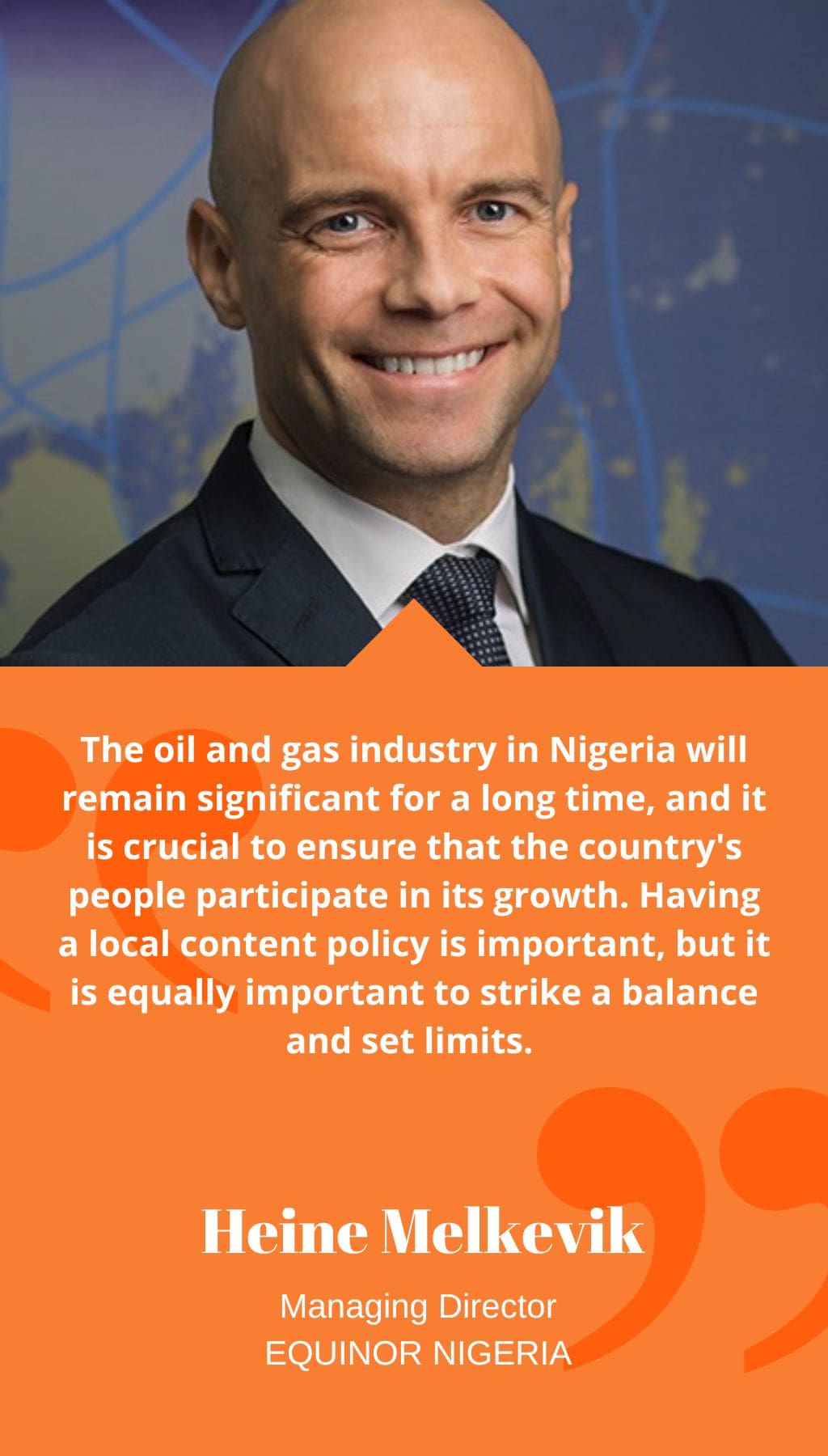
- Nigeria | 30 August 2020

Can you give us an overview of Equinor and the company’s operations in Nigeria?
Equinor Nigeria began its operations in 1992, coinciding with the first deep-water round in Nigeria. Since then, we have made significant discoveries through exploration, including the Agbami field, as well as two deep-water gas discoveries known as Nnwa-Doro and Bilah. Beyond exploration, Equinor is actively involved in marketing, importing products like gasoline and diesel to Nigeria, and trading Nigerian crude in the international oil market.
What sets Equinor apart in the competitive upstream sector?
Equinor is the world’s largest offshore operator, but we see ourselves as a broad energy company. We are not only seeking new opportunities in the oil and gas sector, but we are also building a significant portfolio in renewable energy, particularly offshore wind. We are committed to contributing to a low-carbon future and reducing emissions from our oil and gas operations. Our strength lies in our technology, and our Norwegian heritage, with 67% of shares held by the Norwegian government, reflects our roots and strong values. Equinor prioritizes transparency and building strong partnerships with local and international companies, as well as governments.
How does Equinor collaborate with the Nigerian government?
Equinor has a production sharing contract with the Nigerian government, which differs from a joint venture arrangement since we operate in deep-water. Essentially, Equinor acts as a contractor to the Nigerian government, taking responsibility for producing oil and gas resources.
What is the current state of the Nigerian oil and gas industry from your perspective?
Over the past 20 years, significant progress has been made in terms of local content development. Nigeria has the competence and historical background in oil and gas exploration and production. However, there is still untapped potential in the country’s vast gas resources, which are currently underexplored and underutilized. Equinor, as a major gas supplier to Europe, believes there is potential for increased gas utilization, not only in Nigeria but also in West Africa.
What role can Equinor play in the transition towards natural gas in 2020?
Developing gas resources takes time, usually around five to six years from investment decision to first production. Equinor aims to be a catalyst for advancing deep-water gas development by engaging with stakeholders interested in making gas, whether as LNG, LPG, or domestic gas, a viable investment proposition for Nigeria. Our goal is to see multiple gas projects that benefit Nigeria’s industrialization and economic growth.
How has Equinor dealt with security risks and oil theft in Nigeria?
Equinor operates in deep-water, where oil theft is not a prevalent issue. However, we do need to mitigate piracy risks, which increase operational costs due to the need for additional security measures. While this challenge is not unique to Nigeria, it remains a significant concern in the Nigerian oil and gas industry.
With fiscal uncertainty and delays in the PIB, how does this affect Equinor’s operations?
Oil and gas investments are long-term endeavors, and investors seek certainty to the greatest extent possible. The host country can alleviate uncertainty by demonstrating consistency in its policies. Certainty, trust, and consistency often go hand in hand and are critical factors for attracting capital at favorable rates of return. This holds true wherever we operate in the world.
Can you expand on Equinor’s experience with local content in Nigeria?
The oil and gas industry in Nigeria will remain significant for a long time, and it is crucial to ensure that the country’s people participate in its growth. Having a local content policy is important, but it is equally important to strike a balance and set limits. Nigeria has taken steps to promote a competitive, transparent, and fair supplier market, which is a prerequisite for successful local content development.
Could you tell us about Equinor’s sustainability initiatives in Nigeria, particularly regarding the host communities?
As an offshore operator, our host communities conceptually encompass all of Nigeria. Equinor engages with authorities to identify community needs and determine how we can contribute most effectively. Our sustainability focus areas include education, access to energy, health, and equality. We align our initiatives with the pressing needs of Nigeria.
What are Equinor’s objectives moving forward?
Equinor aims to become a broad energy company, considering how we can complement our offshore operations with potential opportunities onshore. We have been operating in Nigeria for a significant period, and our plan is to continue operating in this market for many years to come. We are committed to making a positive contribution to Nigeria’s future growth and development.














